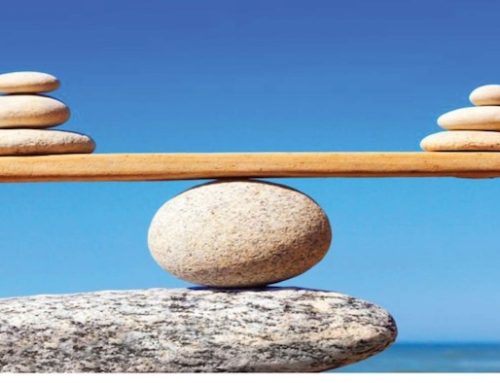Last spring, my daughter who lives in New York City and had been hospitalized with dengue fever in January, suffered Covid-19 in March, and had her dreams of working on Broadway following her graduation from NYU in May evaporate in a raging pandemic, wanted my assurance that “normal” would return soon. In a paternal headfake—the kind you use when you don’t have the answer—I suggested a “new normal” would prevail. “But what will ‘new normal’ be, Papa?,” she asked. (At 22 years of age she knows a headfake when she hears one.) “I just don’t know,” I said apologetically. “No one does,” I added, in an attempt to rescue my paternal authority from the embarrassment of my quotidian ignorance.
As the days of uncertainty turned to weeks then months, and my own wife of sixteen years abandoned our marriage to focus “on myself … to know myself better … and figuring out what I want for my life” in June, I have had plenty of time to plumb the depths of despair and interrogate the factors that landed me, my community, country, and all of humanity in the perilous place we find ourselves today. I dove (or was perhaps shoved) into the cavernous darkness of contemplation; in shorthand, spelunking the soul.
What I have learned thus far, with the help of my therapist, Rita Robinson, is that the pain, grief, and despair we endure from both personal and communal loss must not be wasted on fighting to get back to where we were—to the old normal. Rather, they must be embraced as gifts of deliverance. We must layer the pain, like the compressed slivered sheets that form plywood, into a pliable yet durable springboard to leap to a better place—a better and new normal.
We must first accept the unwelcome truth that the old normal got us into the mess we are in. Why would we pine for its return? Why would we want to reestablish the beliefs, practices, policies, and twisted norms that delivered so much misery? Why would we attempt reconciliation with the capricious? We aren’t where we are entirely by chance; we have contributed mightily to our suffering. We need to own our complicity in the pain we endure while letting go of the factors that conspired against us. Clinging to them for the comfort of the familiar might allow the snake to bite twice.
Our leaders lied to us while we knew better and remained silent. We watched as children were ripped from the arms of their parents and locked in cages and we just turned the channel, or swiped left. We lowered the window shades as our neighbor’s children went to bed hungry. We whined about our liberties lest the indignity of wearing a mask might stifle our freedom, and thousands died. We failed to ask the most fundamental question of all to those we care about: “Are you okay?” Our mouths were busy talking while our ears should have been busy listening. We hid in our social media silos for comfort to shield us from the indecency of our indifference. We wallowed in self-pity as we stroked and groomed our pathetic sense of entitlement.
Yup, we suck. However, we can stop sucking by caring again. By listening. By giving of ourselves. By holding each other to account. We can stand up for the truth and silence the parasites that have been draining the life out of our communities. We can respect the promise of life, liberty and the pursuit of happiness for everyone, not just those who look like us, think like us, or are our so-called friends in our social media cliques. We can sacrifice present comforts for bigger challenges like assuring our air is breathable, our water drinkable, and nature is revered again so that there is a future for all creatures that call earth home. We need to set aside having for being. Our next normal can be much better than the last.
The next few weeks will be some of the toughest ever faced in the history of the United States, but the elements of our redemption are within reach. Safe and effective vaccines. New national leadership. A staggered, humbled, but resolute people who are ready to do the work of renewal. Our losses must be the seeds of a new future—a new normal. We will get out by getting through.
Someday we will be asked how we dealt with the calamity of 2020—easily one of the worst years in the history of America—similar to the questions we asked our parents and grandparents about the Great Depression. Now is the time to make certain your answer is one your children and grandchildren can brag about. That you took your blows, steeled your spine, renewed your sense of empathy, and made the sacrifices—did the hard work—to create a better future born from the lessons of loss.
Happy New Year. I hope.






